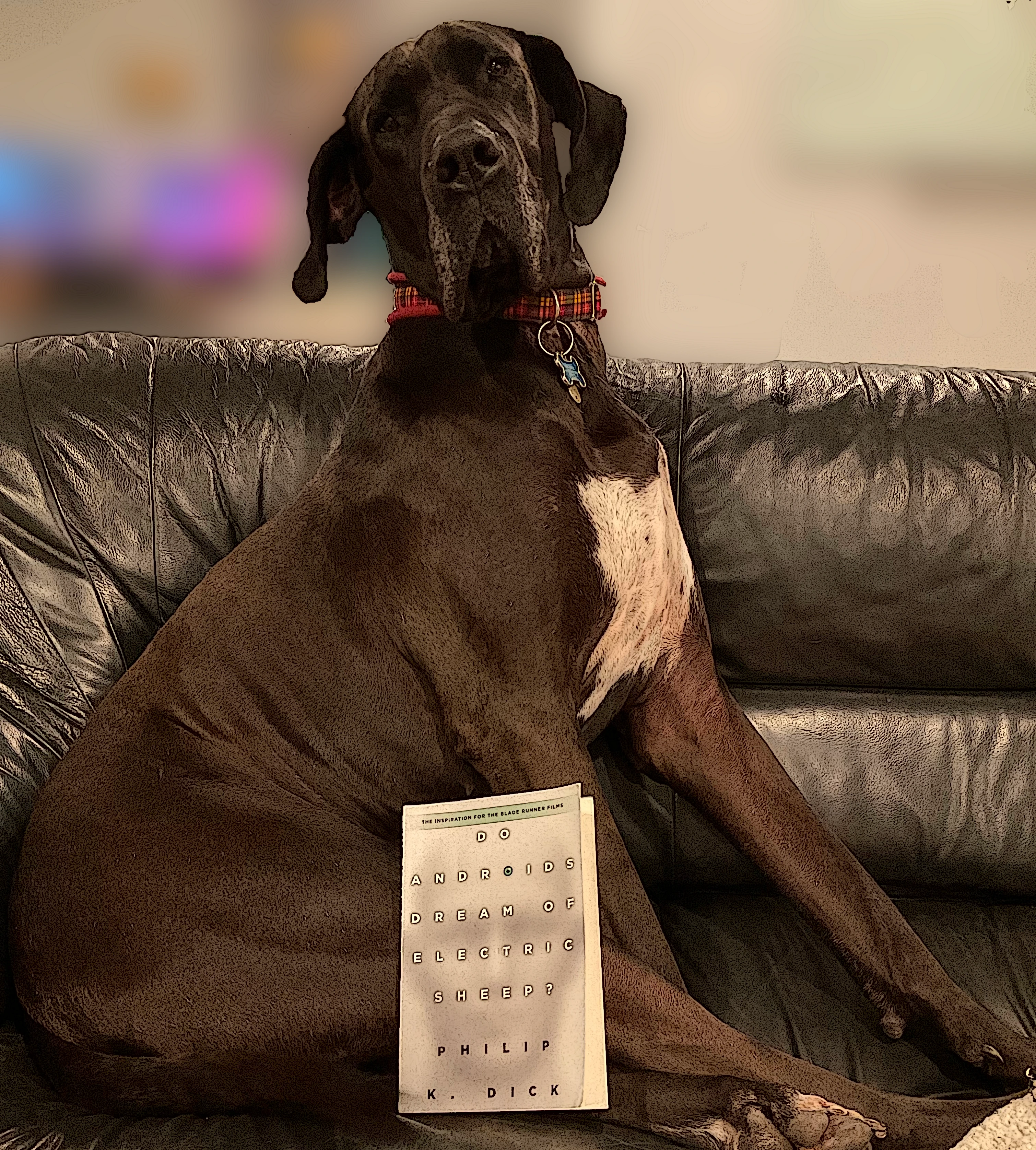
March 17, 2023
Do Androids Dream Of Electric Sheep?
For Rick Deckard an escaped humanoid robot, which had killed its master, which had been equipped with an intelligence greater than that of many human beings, which had no regard for animals, which possessed no ability to feel empathetic joy for another life form’s success or grief at its defeat - that, for him - epitomized The Killers.‘Do Androids Dream of Electric Sheep’, pg., 30, by Philip K. Dick
Introduction
Philip K. Dick was an extremely talented author who started writing professionally in 1952. A UC Berkeley graduate, he wrote over thirty-six novels and five short story collections, including ‘Do Androids Dream of Electric Sheep?’, ‘The Man in the High Castle’, and ‘Flow My Tears, the Policeman Said’. He died at the young age of 54. The 1982 Ridley Scott movie, ‘Blade Runner’, was based on Dick’s book, ‘Do Androids Dream of Electric Sheep?’ The combination of the movie and book provide a mythology about the intersection of technology and life that is at times both fascinating and horrifying.
The book paints a picture of a post-apocalyptic future in 2019, as originally published in 1968. The world has essentially been destroyed by nuclear war and anyone who is somebody has decided to live ‘off world’ on Mars, as all deciding to do so have been promised the company and help of an Android. Nevertheless, there are still those who remain behind on Earth. Practically no animals are left alive on earth, just a few humans who choose to eek out a living on the radioactive dust covered planet.
Below are our top five notes on the futuristic world of today, as depicted by Philip K. Dick and Ridley Scott.
Elon Musk As Mars Émigré Ambassador
That had been the ultimate incentive of emigration: the android servant as carrot, the radioactive fallout as stick. The U.N. had made it easy to emigrate, difficult if not impossible to stay.‘Do Androids Dream of Electric Sheep’, pg., 16, by Philip K. Dick
If you consider what Elon Musk is currently doing at Space-X, it seems eerily parallel to Dick’s story. Building rockets and Androids in support of emigrations to Mars. In addition, hardly a day goes by now where the media is not talking about the possibility of World War Terminus with China and/or Russia.
Coincidence?
No Animals
The book highlights the fact in the story that there are precious few real animals left in the world, and owning a real animal is left only to people of significant wealth and status. Rick Deckard, the Android Bounty Hunter, only owns a solitary electric sheep that he keeps on the roof top of his apartment building, yet he constantly longs to have a live animal in his possession like his neighbor. The movie ‘Blade Runner’ does not highlight this aspect of the story, but touches on it in the apartment of John Isidore (book)/J.F. Sebastian (movie), the synthetic vet helper (book)/bio-engineer (movie), who apparently manufactures synthetic biological creatures of various types.
Sadly, one of the last scenes in the book is John Deckard discovering that a toad he had found, which he thought might make him very wealthy because it was a real animal, was actually a synthetic creature.
I put the book down wondering how any life on earth was supported at all if there were so precious few real animals to be found, given the innate biological interdependencies of all terrestrial life.
What’s Old Is New Again - The Codpiece
In our reading of the book, ‘The Plantagenets’, we learned that the wearing of codpieces became fashion statements during the reign of the Plantagenet Kings. In Dick’s book, lead codpieces are commonplace in 2019 in order to help protect men from the radiation still hanging around from World War Terminus.
I don’t know, maybe Mars and a free Android helper are a no-brainer?
The Voigt-Kampff Test
The Voigt-Kampff test was a test administered by Android Bounty Hunters, in both the book and the movie, in order to help determine whether the test subject was an Android or a Human. The test used various biometric sensors to determine empathetic responses to questions based on the fact that Androids do not exhibit empathy.
This is interesting to consider in relation to the Turing Test, developed by Alan Turing, to help humans guage whether or not computer machines are intelligent.
Why Kill The Androids?
One thing that I felt neither the book nor the movie made very clear was why human society employed Bounty Hunters to kill Androids. The book makes this more clear than the movie, I believe. And I think the answer lies in the sanctity and uniqueness of biological life. The Androids were developed to be indistinguishable from humans, and as such, they were experts at mimicry. With the Android Nexus-6 model, developed by the Rosen Organization (book) (aka Tyrell Corporation (movie)), the replicants became more and more human-like. There were precious few biological animals left in existence already, and the threat of Androids killing and replacing humans on earth was too great of a threat to ignore.
In one scene in the book, the Androids had actually created a parallel police precinct that Rick Deckard was not aware of, and making similar claims, threatened to throw Deckard in jail (thus removing another Bounty Hunter threat). The ramifications of a larger Android infiltration on Earth could have proven disastrous to the last remaining human remnants on earth, if not immediately irradicated, given their human mimicry abilities and higher intelligence.
A warning from the past?
Conclusion
It’s refreshing to read a fantasy book from time-to-time. I also find it interesting to reflect on how works of science fiction can surreptitiously influence the future we make for ourselves, for better or for worse.
Here’s to dreaming-up a better future for all mankind.
Please Support Our Sponsors
Relevant Links
James Caple
BLOG
podcast learning entrepreneurship innovation learning personal growth intelligence ai machine learning androids philip k. dick Blade Runner nuclear holocaust mars off planet nexus-6 rick deckard rachel rosen voigt-kampff john isidore turing test alan turing tyrell corporation 2019
